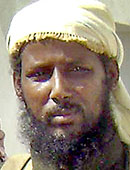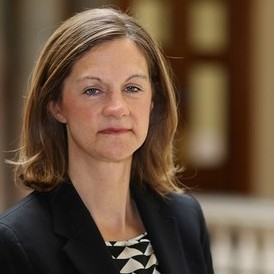
The International Organization for Migration (IOM) is a United Nations related organization working in the field of migration. The organization implements operational assistance programmes for migrants, including internally displaced persons, refugees, and migrant workers.

The Uganda People's Defence Force (UPDF), previously known as the National Resistance Army, is the armed forces of Uganda. From 2007 to 2011, the International Institute for Strategic Studies estimated the UPDF had a total strength of 40,000–45,000, consisting of land forces and an air wing. Recruitment to the forces is done annually.
Humanitarian aid workers belonging to United Nations organisations, PVOs / NGOs or the Red Cross / Red Crescent are among the list of protected persons under international humanitarian law that grant them immunity from attack by belligerent parties. However, attacks on humanitarian workers have occasionally occurred, and become more frequent since the 1990s and 2000s. In 2017, the Aid Worker Security Database (AWSD) documented 139 humanitarian workers killed in intentional attacks out of the estimated global population of 569,700 workers. In every year since 2013, more than 100 humanitarian workers were killed. This is attributed to a number of factors, including the increasing number of humanitarian workers deployed, the increasingly unstable environments in which they work, and the erosion of the perception of neutrality and independence. In 2012 road travel was seen to be the most dangerous context, with kidnappings of aid workers quadrupling in the last decade, reaching more aid workers victims than any other form of attack.

A refugee camp is a temporary settlement built to receive refugees and people in refugee-like situations. Refugee camps usually accommodate displaced people who have fled their home country, but camps are also made for internally displaced people. Usually, refugees seek asylum after they have escaped war in their home countries, but some camps also house environmental and economic migrants. Camps with over a hundred thousand people are common, but as of 2012, the average-sized camp housed around 11,400. They are usually built and run by a government, the United Nations, international organizations, or non-governmental organization. Unofficial refugee camps, such as Idomeni in Greece or the Calais jungle in France, are where refugees are largely left without the support of governments or international organizations.

The Somali Civil War is an ongoing civil war that is taking place in Somalia. It grew out of resistance to the military junta which was led by Siad Barre during the 1980s. From 1988 to 1990, the Somali Armed Forces began engaging in combat against various armed rebel groups, including the Somali Salvation Democratic Front in the northeast, the Somali National Movement in the Somaliland War of Independence in the northwest, and the United Somali Congress in the south. The clan-based armed opposition groups overthrew the Barre government in 1991.

The Transitional Federal Government (TFG) was internationally recognized as a provisional government of the Somalia from 14 October 2004 until 20 August 2012, when its tenure officially ended and the Federal Government of Somalia (FGS) was inaugurated.

The Ethiopian invasion of Somalia, also known as the Ethiopian occupation of Somalia or the Ethiopian intervention in the Somali Civil War, was an armed conflict that lasted from late 2006 to early 2009. It began when military forces from Ethiopia, supported by the United States, invaded Somalia to depose the Islamic Courts Union (ICU) and install the Transitional Federal Government (TFG). The conflict continued after the invasion when an anti-Ethiopian insurgency emerged and rapidly escalated. During 2007 and 2008, the insurgency recaptured the majority of territory lost by the ICU.

The African Union Mission in Somalia (AMISOM) was a Multinational force formed by the African Union. The operation deployed to Somalia soon after the Islamic Courts Union was deposed by troops from Ethiopia during a large scale invasion in late 2006. The missions primary objective was to maintain the regime change between the ICU and the newly installed Transitional Federal Government, implement a national security plan and train the TFG security forces. As part of its duties, AMISOM later supported the Federal Government of Somalia in its war against Al-Shabaab. AMISOM was the most deadly peacekeeping operation in the post-war era.
Various international and local diplomatic and humanitarian efforts in the Somali Civil War have been in effect since the conflict first began in the early 1990s. The latter include diplomatic initiatives put together by the African Union, the Arab League and the European Union, as well as humanitarian efforts led by the Office for the Coordination of Humanitarian Affairs (OCHA), UNICEF, the World Food Programme (WFP), the Puntland Maritime Police Force (PMPF) and the Somali Red Crescent Society (SRCS).

Sheikh Mukhtar Robow, also known as Abu Mansur, is a former deputy leader and former spokesman of the Somali militant group Al-Shabaab. In 2015, he defected from Al-Shabaab due to ideology issues after years of hiding in his hometown. In 2022, Robow was appointed as the Minister of Religious Affairs in the Somali government.
Nicolas Bwakira was a Burundian diplomat, international civil servant and pan-africanist. During his long and exemplary career, Bwakira took on senior roles and responsibilities at various institutions, including the United Nations High Commission for Refugees (UNHCR), the University of South Africa (UNISA), the African Union, the Institute for Security Studies (ISS) and the Crisis Management Initiative (CMI). Bwakira fought the good fight as a pan-Africanist and international civil servant in the service of Africa and its people, especially for those in Namibia, Angola, Somalia and, more recently, the Lake Chad Basin. The quest for peace was his lifelong passion. From the time of his posting in Angola in 1976, he developed a special connection with southern African countries, among which Namibia. From 1976 to 1990, Namibian refugees and Namibia’s independence featured prominently in his professional career. In his role as Coordinator for the return of Namibian exiles, he was instrumental in negotiating a total blanket amnesty with the apartheid government as a condition for the return of Namibian exiles. Later, as Director for Africa, he negotiated a total blanket amnesty with the apartheid government, as a pre-condition of the return of South African exiles members of liberation movements.

The Somali Civil War (2009–present) is the ongoing phase of the Somali Civil War which is concentrated in southern and central Somalia. It began in late January 2009 with the present conflict mainly between the forces of the Federal Government of Somalia assisted by African Union peacekeeping troops and al-Shabaab militants who pledged allegiance to al-Qaeda during 2012.
The United Nations Support Office for AMISOM (UNSOA) was a field support operation led by the United Nations Department of Field Support (DFS). It was located in Mogadishu and Nairobi in East Africa, focused on support of the African Union Mission in Somalia (AMISOM).
The War on Terror is the campaign launched by the United States of America in response to the September 11 attacks against organizations designated with terrorism. The campaign, whose stated objective was eliminating international terrorism, began in 2001. The following is a timeline of events linked to the War on Terror.

Occurring between July 2011 and mid-2012, a severe drought affected the entire East African region. Said to be "the worst in 60 years", the drought caused a severe food crisis across Somalia, Djibouti, Ethiopia and Kenya that threatened the livelihood of 9.5 million people. Many refugees from southern Somalia fled to neighboring Kenya and Ethiopia, where crowded, unsanitary conditions together with severe malnutrition led to a large number of deaths. Other countries in East Africa, including Sudan, South Sudan and parts of Uganda, were also affected by a food crisis.
The 2011 Mogadishu bombing occurred on 4 October 2011, when a suicide bomber drove a truck into the gate of the Transitional Federal Government's ministerial complex in Mogadishu, Somalia. The resulting explosion killed 100 people and injured over 110 others. Al-Shabaab, an Islamist group, claimed responsibility for the attack. The attack is reported to be the largest since Al-Shabaab launched an insurgency in Somalia in early 2007. It also follows the withdrawal of Al-Shabaab's forces from the area in August after an AMISOM intervention to bring aid to the country during a season of drought.
The following lists events that happened during 2020 in East Africa. The countries listed are those described in the United Nations geoscheme for East Africa: Burundi, Comoros, Djibouti, Eritrea, Ethiopia, Kenya, Madagascar, Malawi, Mauritius, Mayotte, Mozambique, Réunion, Rwanda, Seychelles, Somalia, South Sudan, Tanzania, Uganda, Zambia, Zimbabwe.

Kate Foster is a British diplomat. In 2021 she became the United Kingdom's ambassador to Somalia. She is based at the British embassy in Mogadishu, but no consular services were offered there as of 2022.

Anita Kiki Gbeho is a Ghanaian United Nations official who is the Deputy Special Representative in the United Nations Mission in South Sudan and Resident Coordinator in South Sudan since 8 December 2023.















